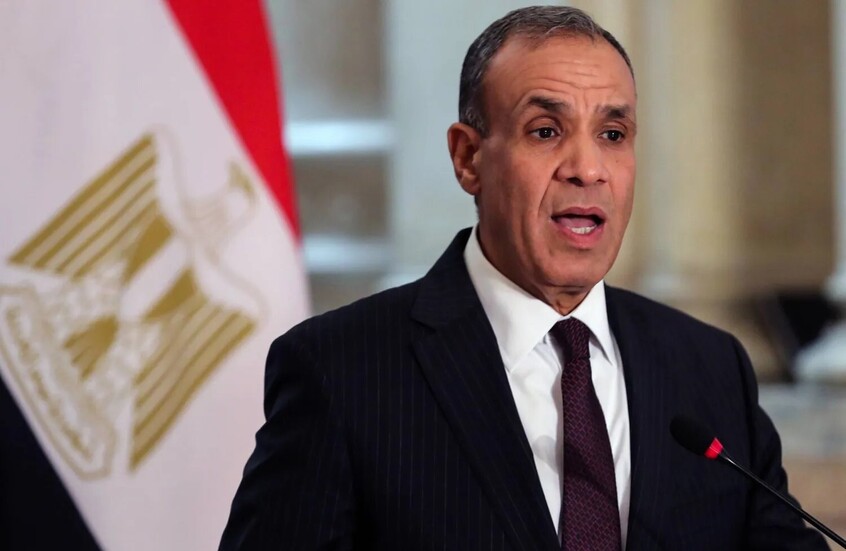Egypt's Foreign Minister: Major Gaps in Trump's Peace Plan and We Warn of Escalation of Conflict in Gaza

Egyptian Foreign Minister, Badr Abdel Aty, warned of the possibility of escalating conflict in the Gaza Strip if the Hamas movement rejects U.S. President Donald Trump's peace plan, announcing at the same time that Cairo is working with both Qatar and Turkey to persuade the movement to accept it.
This came during statements made by Abdel Aty on Thursday at the French Institute of International Relations in Paris, where he indicated that Trump's plan enjoys "broad support," but he added: "However, there is a need for further discussion about it," considering that "there are many gaps that need to be filled, and more discussion about how to implement it, especially on two important issues: governance and security arrangements."
In the context of answering the nature of these gaps, Ambassador Atef Salem, former Egyptian ambassador to Israel, revealed a number of points that need to be reviewed in the American proposal.
Salem explained that among these gaps is "not giving Hamas enough opportunity to consult on the terms of the proposal. In the event of its rejection, the terms will be applied in areas free of terrorism, which the Israeli army will hand over to the international stability force. Additionally, imposing a form of guardianship over the Gaza Strip by establishing an administrative structure to manage Gaza, represented by a peace council and a transitional authority, isolated from the Palestinian people, and the absence of a role for the Palestinian Authority during a period extending over 5 years."
He also added that the plan "linked the withdrawal of the Israeli army from the strip to establishing control and stability by an international authority, based on criteria, stages, and timelines related to disarming Hamas."
The former Egyptian ambassador continued, noting that "Israel will continue—even in the event of withdrawal from the Gaza Strip—to control all sides of the strip, which means that the situation will be like what happens in southern Lebanon."
He pointed out that the proposal overlooked any reference to the two-state solution, "but merely that the United States would establish a dialogue between Israel and the Palestinians to agree on a political horizon for prosperous peaceful coexistence," and it did not include "any reference to the West Bank and Trump's commitments not to annex it to Israel."
For his part, Major General Dr. Wael Rabi, a specialist in regional and Israeli affairs, commented by saying: "Before delving into the details of the plan and its negatives, it should be noted that the reason for the escalation of the Gaza Strip issue is neither Hamas nor the Palestinian Authority, but rather the absence of an international system capable of regulating international peace and security."
Rabi added, stating to media outlets that: "Most of the plan's provisions are characterized by a lack of clarity, especially when it comes to implementing Israel's obligations, such as the issue of withdrawal from the strip, which is the most important."
He warned that "many provisions of the plan require a special negotiation track to be implemented, such as the force to be formed. This in itself gives Israel the ability to adjust its conditions and arrange matters to impose a fait accompli on the ground that is difficult to change in any future negotiations regarding the Palestinian state, which was not mentioned at all in this plan."
He emphasized that "the plan did not address the established and original rights of the Palestinian people," questioning: "Who guarantees that after handing over the weapons, Israel will not continue to kill Palestinians, with no specific timelines for the Israeli withdrawal from the strip?"
It is worth mentioning that the White House had revealed earlier this week a 20-point plan calling for an immediate ceasefire, a prisoner exchange, a gradual Israeli withdrawal from Gaza, disarming Hamas, and forming a transitional government led by an international body.
President Trump had given the Hamas movement 3-4 days to agree to the plan, which it has not yet officially responded to, while Israeli Prime Minister Benjamin Netanyahu has approved it.